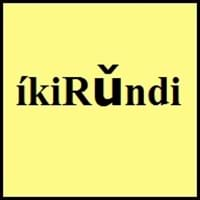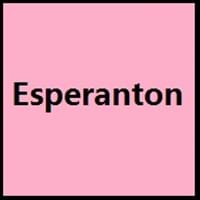Kirundi vs Esperanto
Countries
Burma
East Asia, European Union, South America
National Language
Burundi, Gambia
East Asia, European Union
Second Language
Not spoken in any of the countries
Central Europe, East Asia, Eastern Europe, South America
Speaking Continents
Africa, Asia
Asia, Europe, South America
Minority Language
Not spoken in any of the countries
Not spoken in any of the countries
Regulated By
Not Available
Akademio de Esperanto
Interesting Facts
- Kirundi language is tonal, since it has high and low essential tones.
- Kirundi Language is referred as a language where Meeussen's rule is active, this rule describes a certain pattern of tonal change in Bantu languages.
- The most widely spoken constructed language in the world is Esperanto.
- Esperanto is an artificial international language.
Similar To
Kinyarwanda Language
Not Available
Derived From
Not Available
Not Available
Alphabets in
Kirundi-Alphabets.jpg#200
Esperanto-Alphabets.jpg#200
Writing Direction
Not Available
Not Available
Language Levels
Not Available
Time Taken to Learn
Not Available
How Are You?
Urakomeye?
Kiel vi sanas?
Good Night
Ijoro ryiza
Bonan nokton
Good Evening
Mwiriwe
Bonan vesperon
Good Afternoon
Mwiriwe
Bonan posttagmezon
Good Morning
Mwaramutse
Bonan matenon
Please
Ndagusavye
Mi petas
Sorry
Not available
Mi bedaŭras!
I Love You
Not available
Mi amas vin
Excuse Me
Not available
Pardonu!
Dialect 1
Rwanda-Rundi
Not present
Where They Speak
Burundi, Rwanda, Tanzania, Uganda
Not present
How Many People Speak
Not Available
Where They Speak
Tanzania
Not present
How Many People Speak
Not Available
Dialect 3
Shubi
Not present
Where They Speak
Tanzania
Not present
How Many People Speak
Not Available
Speaking Population
Not Available
Second Language Speakers
Not Available
Native Name
íkiRǔndi
Esperanto
Alternative Names
Not Available
Eo, La Lingvo Internacia
French Name
rundi
espéranto
German Name
Kirundi
Esperanto
Pronunciation
Not Available
[espeˈranto]
Ethnicity
Hutu, Tutsi, and Twa
Not Available
Language Family
Niger-Congo Family
Indo-European Family
Subgroup
Not Available
Not Available
Branch
Not Available
Not Available
Early Forms
No early forms
Proto-Esperanto
Standard Forms
Kirundi
Esperanto
Language Position
Not Available
Signed Forms
Not Available
Signuno
Scope
Not Available
Individual
ISO 639 6
Not Available
Not Available
Glottocode
rund1242
espe1235
Linguasphere
No data available
51-AAB-da
Language Type
Not Available
Constructed
Language Linguistic Typology
Not Available
Not Available
Language Morphological Typology
Not Available
Agglutinative
Kirundi and Esperanto Language History
Comparison of Kirundi vs Esperanto language history gives us differences between origin of Kirundi and Esperanto language. History of Kirundi language states that this language originated in 1500 whereas history of Esperanto language states that this language originated in 1887. Family of the language also forms a part of history of that language. More on language families of these languages can be found out on Kirundi and Esperanto Language History.
Kirundi and Esperanto Greetings
People around the world use different languages to interact with each other. Even if we cannot communicate fluently in any language, it will always be beneficial to know about some of the common greetings or phrases from that language. This is where Kirundi and Esperanto greetings helps you to understand basic phrases in Kirundi and Esperanto language. Kirundi word for "Hello" is Bwakeye or Esperanto word for "Thank You" is Dankon. Find more of such common Kirundi Greetings and Esperanto Greetings. These greetings will help you to be more confident when conversing with natives that speak these languages.
Kirundi vs Esperanto Difficulty
The Kirundi vs Esperanto difficulty level basically depends on the number of Kirundi Alphabets and Esperanto Alphabets. Also the number of vowels and consonants in the language plays an important role in deciding the difficulty level of that language. The important points to be considered when we compare Kirundi and Esperanto are the origin, speaking countries, language family, different greetings, speaking population of these languages. Want to know in Kirundi and Esperanto, which language is harder to learn? Time required to learn Kirundi is Not Available while to learn Esperanto time required is 6 weeks.





